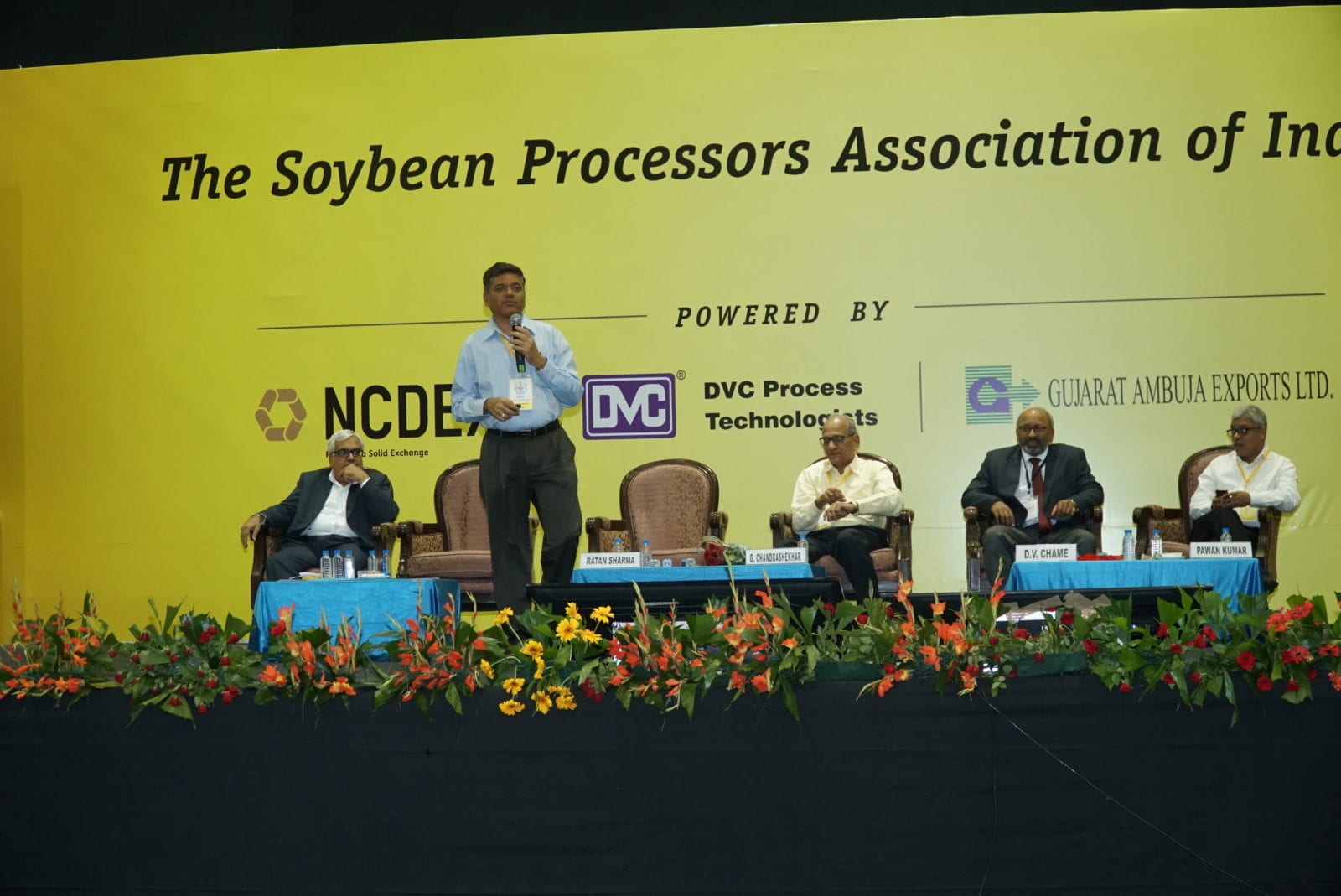USSEC India Participates in International Soy Conclave 2017
- Category:
- General News
- Soybean OIl

USSEC India participated in the International Soy Conclave 2017 in Indore, the Soy Capital of India. This event was organized by the Soybean Processors Association of India (SOPA) and was attended by more than 600 participants from all over the world. Many government organizations; ministers; policy planners; agriculture policy and trade experts; various oil seed and oil trade associations; soy crushers and soy food processors; soybean, soy oil, and soybean meal traders; and biotech regulators participated in this mega event.
During the two-day program, many topics including soy production, processing, and trade were discussed. A separate session on genetic engineering was organized and was participated in by relevant stakeholders from academia, industry associations, biotech experts and regulators, and government policy planners. A debate took place on GMO and non-GMO soybeans and whether India should go for genetically engineered beans. Industry associations such as Solvent Extractors Association of India (SEAI), Adani Wilmar, and a few other companies favored the genetically engineered technology and strongly recommended GE during this debate.
USSEC’s Dr. Pawan Kumar and Ratan Sharma participated as speakers at this conference. Dr. Kumar presented the overall soybean meal supply and demand situation globally and in special context to the Asia Subcontinent (ASC) region. He said that the ASC countries, mainly Pakistan and Bangladesh, have switched from soybean meal imports to soybean imports. These countries are now actively crushing soybeans locally to meet their meal and oil requirements.Dr. Pawan further discussed the soy utilization in the ASC countries and forecasted the future demand which is growing at a faster pace because of the growing economy leading to an increase in per capita disposable income, accelerating the choice of eating healthy food in the region.
Dr. Sharma talked about the remarkable quality of soybeans and soybean oil produced by U.S. farmers and the soybean oil processing industry. Interpreting the overall soybean oil situation in India, its consumption pattern and overall growth in this sector, Dr. Sharma explained that soybean oil is the second largest edible oil consumed in India after palm oil. He further discussed the U.S. Food and Drug Administration (FDA) health claim approval on soybean oil; about high oleic soybean oil produced by the U.S. Soy processing industry and explained about its properties in comparison with regular soybean oil; about the branding opportunities of U.S. soybean oil for differentiation; and how to develop a premium soybean oil category through this branding. He spoke on the global supply and demand situation in context of soybeans and soybean oil, and highlighted the major producers and the utilizing countries for these products. Dr. Sharma highlighted that in the oil year 2016-17, India produced 0.93 million metric tons (MMT) and imported 4.2 MMT of soybean oil leading to a total consumption of more than 5 MMT.
